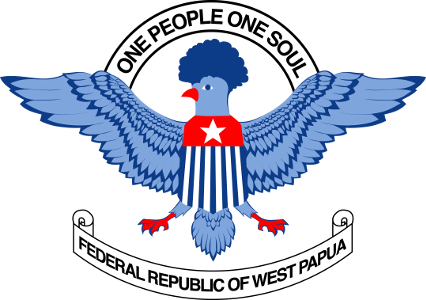BOOK LAUNCH: Open Day: Sunday 11 Sept 2022: Award-winning anthropologist Sophie Chao talking about her latest study In the Shadow of the Palms: more-than-human becomings in West Papua (Duke University Press, June 2022).
“This excellent and beautifully written book, which is both heart-wrenching and joy producing, makes a field-changing contribution to anthropology, human-animal studies, political ecology, environmental humanities, and postcolonial studies” (Paige West, author of ‘Dispossession and the Environment: Rhetoric and Inequality in Papua New Guinea’)
 SOPHIE CHAO “I am an environmental anthropologist and environmental humanities scholar interested in the intersections of capitalism, ecology, Indigeneity, health, and justice in the Pacific”. IN THE SHADOW OF THE PALMS won the 2019 John Legge Prize for Best Thesis in Asian Studies (Asian Studies Association of Australia); the 2019 Australian Anthropological Society Award; and the Duke University Press Scholars of Color First Book Award in 2021.
SOPHIE CHAO “I am an environmental anthropologist and environmental humanities scholar interested in the intersections of capitalism, ecology, Indigeneity, health, and justice in the Pacific”. IN THE SHADOW OF THE PALMS won the 2019 John Legge Prize for Best Thesis in Asian Studies (Asian Studies Association of Australia); the 2019 Australian Anthropological Society Award; and the Duke University Press Scholars of Color First Book Award in 2021.
In this remarkable thesis, Sophie Chao provides a ground-breaking exploration and analysis of dynamic plant-human-capital relationships in West Papua. The study centres on the devastation wrought by state-sponsored agro-industrial capitalism in the form of oil palm plantations, as experienced and perceived by the Marind-Anim people of Merauke District. Beautifully written, theoretically sophisticated, and deeply empathetic, the study shows how a lethal process of botanical colonization has disrupted existing multispecies networks and reconfigured people’s ways of being in the world. The effects on places, persons, time, and indeed dreams are persuasively explained as interlinked processes of deterritorialization and detemporalization. Rooted in cultural anthropological methods and informed by post-humanist theory, the analytical approach incorporates insights from environmental humanities, science and technology studies, plant science, ethnobotany, political economy and more. The thesis is extremely ambitious in its conceptual and theoretical aims, and required a high degree of political and ethical sensitivity in the associated fieldwork. It has emphatically delivered on all fronts. It seems destined to inform and provoke productive debate over sustainable environmental, economic and social systems, in Indonesia and elsewhere.
Media Release ‘In the shadow of the palms’ (1xA4, PDF)
Sophie Chao, Media Release, 1 Sep 2022
Review ‘In the shadow of the palms’, Dr Robert Wolfgramm (3xA4, PDF)
Robert Wolfgramm, Review, In the shadow of the palms, 31 Oct 2022
Chapter 1 ‘In the shadow of the palms’ (pp1-33, PDF)
https://www.dukeupress.edu/Assets/PubMaterials/978-1-4780-1824-7_601.pdf
Video summary ‘In the Shadow of the Palms’ (5-min video)
https://www.youtube.com/watch?v=U0n1dbxUa1k
‘Palm Oil and Indigenous Peoples’ (audio-interview, 43-min, 11 July 2019)
Links to other works by Sophie Chao
Sophie Chao: Biography (4 x A4, PDF) https://docs.wixstatic.com/ugd/1e8126_0177190a03b341af9c38dac1ded5c63f.pdf
The Plastic Cassowary; Problematic Pets in West Papua (18 pages, PDF), Ethnos Journal of Anthropology, July 2018.
ThePlasticCassowaryProblematicPetsinWestPapua
Papua, Food and Racism (44-min audio, Talking Indonesia, Melbourne University, 30 Sept 2021)
https://soundcloud.com/talking-indonesia/sophie-chao-papua-food-racism?
Eating and Being Eaten: The Meanings of Hunger among Marind, 2021 (2-min video)
“In this article, I explore how Marind communities in West Papua experience and interpret hunger. Drawing from Indigenous discourse and practice, I examine how agro-industrial expansion and commodified foodways provoke multiple, conflicting hungers among Marind – for sago, “plastic” foods, money, and human flesh. In tandem, Marind themselves are subjected to the insatiable appetite of various invasive entities – corporations, the government, roads, cities, and oil palm. I argue that hunger constitutes a symbolically charged, culturally constructed, and morally laden experiential mode through which Marind characterize and contest capitalist modernity and its more-than-human dynamics of eating and being eaten”.
https://www.tandfonline.com/doi/full/10.1080/01459740.2021.1916013

